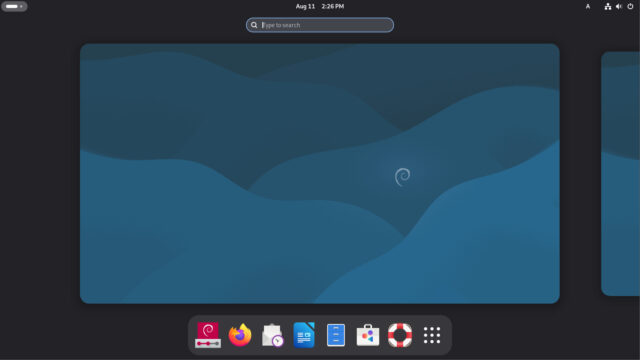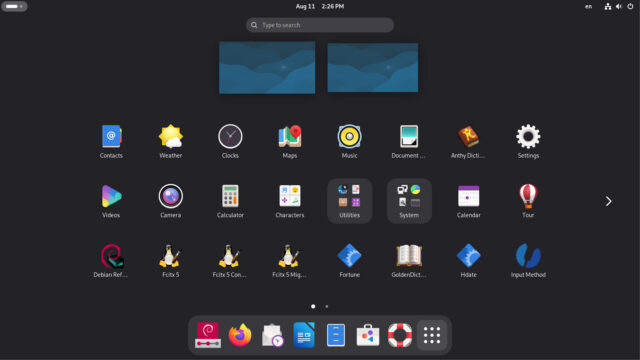Debian 13 'trixie' released with five years of support and new architecture options

Lucky for fans of the popular Linux operating system, Debian has released version 13, codenamed “trixie,” marking the project’s first stable release in over two years. Supported for the next five years by the Debian Security and Long Term Support teams, trixie delivers updated packages, improved hardware compatibility, and expanded architecture support, including official riscv64 support for the first time.
The release includes multiple desktop environments such as GNOME 48, KDE Plasma 6.3, LXDE 13, LXQt 2.1.0, and Xfce 4.20.
SEE ALSO: Oreon 11 could be the Linux OS that helps you leave Microsoft Windows for good
Debian 13 adds over 14,100 new packages, removes 8,840 obsolete ones, and updates more than 44,000. The system now offers nearly 70,000 packages, occupying 403GB of disk space and consisting of over 1.46 billion lines of code.
Translations have been improved in this new version, with the manpages-l10n project providing clearer manuals in several languages, especially Romanian and Polish.
All architectures except i386 now use a 64-bit time_t ABI, extending date handling beyond the year 2038. Work towards reproducible builds continues, with the new debian-repro-status package allowing users to check reproducibility locally.
Debian 13’s updated software list spans core system tools, programming languages, and productivity software.
Highlights include Linux kernel 6.12 LTS, GCC 14.2, LibreOffice 25.2, GIMP 3.0.4, MariaDB 11.8, PostgreSQL 17, Python 3.13, PHP 8.4, and OpenSSL 3.5. Popular server tools such as Apache 2.4.64, Nginx 1.26, and Samba 4.22 are also included.
Debian architectures
This release officially supports seven architectures: amd64, arm64, armel, armhf, ppc64el, riscv64, and s390x. i386 is no longer a standard architecture and is now intended only for running in 64-bit CPU environments without official kernel or installer support.
Debian 13 will also be the final release to support armel.
The Debian Cloud team has produced images for platforms such as Amazon EC2, Microsoft Azure, and OpenStack. Generic and nocloud images are available, with optimizations for fast booting and automation support through cloud-init.
For anyone wishing to try Debian 13 without committing to an installation, live images are available for amd64 and arm64 in various desktop environments, along with a standard image for a minimal setup.
These can be used from DVD, USB, or netboot, and include both Calamares and the Debian Installer for permanent installation. Container images are also on Docker Hub in standard and slim formats.
Upgrades from Debian 12 “bookworm” are handled through APT for most configurations, although the project advises full backups and reading the release notes before proceeding.
The installer has been updated with better hardware support, speech synthesis improvements, secure boot with systemd-boot, and other improvements.

It's not all good news. The Debian team warns that some changes may require attention during or after upgrading. For example, OpenLDAP now uses OpenSSL for TLS, affecting configuration options and behavior.
Debian 13 ISOs can be downloaded from here.
What do you think about Debian 13 “trixie”? Let us know in the comments.
